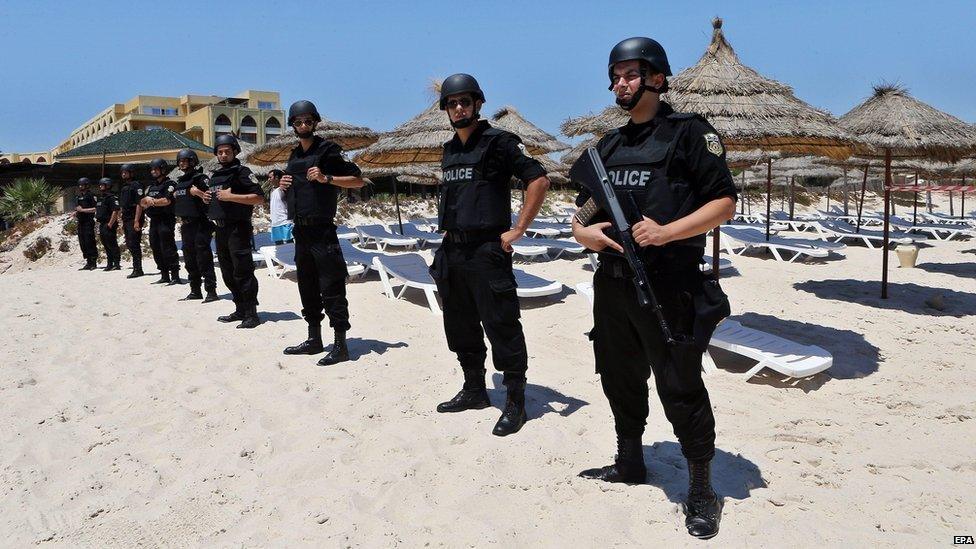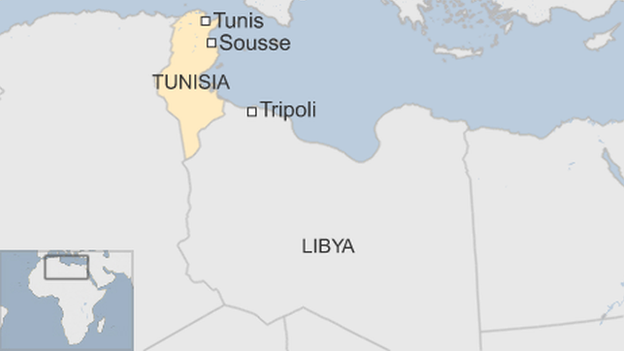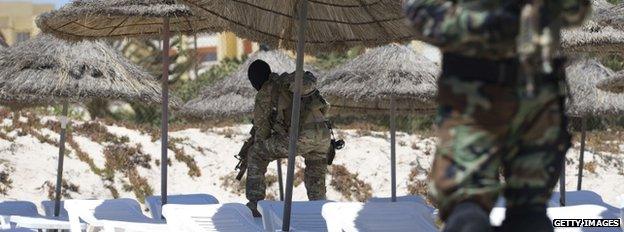Tunisia to build 'anti-terror' wall on Libya border
- Published

The authorities are deploying 1,400 armed officers at hotels and beaches to protect tourists
Tunisia has announced plans to build a wall along its border with Libya to counter the threat from jihadist militants.
It would stretch 160km (100 miles) inland from the coast, and be completed by the end of 2015, Tunisian Prime Minister Habib Essid told state TV.
The gunman who killed 38 people in an attack on a beach resort is believed to have received training in Libya.
Tunisia declared a state of emergency following the attack last month.
The Tunisian army would build the wall, which would have surveillance centres at certain points along it, Mr Essid said.

Authorities had already tightened security following the Sousse attack, in which 30 Britons were killed, deploying more than 1,400 armed officers at hotels and beaches.
Last week, Mr Essid told the BBC that the gunman, Seifeddine Rezgui, had probably trained with the Ansar al-Sharia group in Libya, though Islamic State (IS) earlier said it was behind the attack.
"The time of [police] reaction - this is the problem," Tunisia's PM Habib Essid told Richard Galpin
The BBC's Rana Jawad in the capital, Tunis, says Tunisians do not need a visa to travel to Libya.
Over the last year, IS has set up bases in the east and west of the Libya, which shares a 459km border with Tunisia, she says.
However, Tunisia's longest land border is with Algeria and militants have also reportedly been crossing there in recent years, our reporter says.
Eight people have been arrested on suspicion of collaborating with Rezgui, who was killed after his shooting spree, and the government says it has uncovered the network behind the Sousse attack.
In the coming weeks officials are expected to pass a counter-terrorism bill that has been in parliament since early 2014.
The Sousse attack represented the second blow in three months to Tunisia's tourism industry, an important sector for the country.
In March, two gunmen killed 22 people at the renowned Bardo museum in Tunis.

Background and analysis

What we know so far
Special report on the Tunisia attack
Profile of gunman Seifeddine Rezgui
Tributes have been paid to victims in England, Wales, Scotland and Northern Ireland